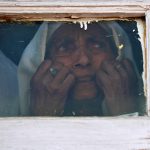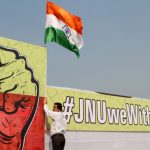India prosecutes Kashmiri social media users
Kashmiris are skirting the government’s social media ban by using VPN apps, leading to charges of ‘terrorism’ for accessing restricted platforms such as Facebook and Twitter.
Author:
6 March 2020

Authorities in Indian-administered Kashmir have arrested residents and booked hundreds of social media users under its stringent counterterrorism law for using proxy servers via virtual private network (VPN) apps to circumvent the ban on social networking platforms. The police have also questioned numerous users after filing an “open” case against residents who access blocked networking sites such as Facebook and Twitter.
Rights activists have deemed the decision to prosecute Kashmiri social media users as “terrorists” as another attempt to crack down on public dissent and a way to censor the ongoing human rights abuses in the disputed Himalayan territory.
“The FIR [the police’s first information report] has been registered while taking cognisance of the social media posts by the miscreants by use of different VPNs, which are propagating rumours with regard to the current security scenario of the Kashmir valley, propagating secessionist ideology and glorifying terror acts/terrorists. Lot of incriminating material has also been seized in this regard,” said the police.
Related article:
The police said they have taken action on a government order dated 14 January that bans the use of all social media sites. The Kashmir cyber police invoked charges under Sections 13 of the Unlawful Activities (Prevention) Act (UAPA), 188 and 505 of the Indian Penal Code and 66A (b) of the IT Act. Under the UAPA, India’s principal counterterrorism law, the government can label individuals as “terrorists” without evidence, trial or conviction, and those found guilty can be jailed for up to seven years with little legal recourse. Notably, the Indian Supreme Court struck down Section 66A of the IT Act in 2015.
The police claim to have identified hundreds of users who have allegedly misused social media to disseminate fake and false secessionist, anti-India propaganda. “Don’t be under the misconception that it [social media] is not being used in Kashmir. And if we are picking up people on this basis, we know that people are misusing it. We are selectively picking people from the places where these things are happening,” said Kashmir Police director general Dilbagh Singh.
Alarmed residents began deactivating their social media accounts after the police registered the “open” case, fearing mass arrests and detention without access to legal recourse.
According to reports, at least five people including two minors have been arrested for allegedly ‘misusing’ social media, and booked one of them under the sections of stringent UAPA. Police arrested one person in North Kashmir’s Handwara for allegedly spreading “fake news and rumours” on social media by using VPN. Another youth from the capital Srinagar was arrested on charges of trying to “malign the image of security forces”. The city’s cyber police also filed another case against a Kashmiri man based in Dubai over one of his social media posts and sought his repatriation. Many Kashmiris have alleged that Indian soldiers are stopping people on the streets to check their phones for VPN apps.
Related article:
The decision to file the case came after Pakistan-based users uploaded a video of ailing Kashmiri separatist Hurriyat chairperson Syed Ali Geelani to social media. The police detained Geelani’s cook and a helper to find out who had smuggled two videos, in which the 90-year-old leader made his “last wish” from his Srinagar residence, across the border. Being the most prominent anti-India and pro-Pakistan leader, Geelani has been under house arrest since 2010 and only a few close relatives may visit him.
The ultra-right-wing government of Prime Minister Narendra Modi enforced a blanket communications blackout in Kashmir after annulling the region’s special status, which gave it a degree of autonomy, on 5 August 2019. Although the prohibition on 3G and 4G internet services remains, low-speed 2G services were restored on 25 January. But only 301 acceptable websites were whitelisted and these didn’t include any social media platforms such as Facebook, Twitter, WhatsApp or Instagram.
On 10 January, after Kashmir Times newspaper editor Anuradha Bhasin legally challenged the communication lockdown in the state, India’s Supreme Court directed the Bharatiya Janata Party-led central government to review the restrictions on the internet and the right to assembly in Kashmir. The court noted that freedom of speech and expression, as well as the freedom to practise any profession or carry on any trade, business or occupation on the internet, enjoy protection under the Indian Constitution. The restriction of such fundamental rights should be in consonance with the mandate under Article 19 (2) and (6) of the Indian Constitution, inclusive of the test of proportionality.
The United Nations has said the ban has “the character of collective punishment”, while four United States senators recently wrote to US Secretary of State Mike Pompeo expressing concern about the curbs on the internet in Kashmir and calling for its full restoration.
The threat fallout
Low-speed internet and limited access to websites have led to people in the valley opting to use mobile VPN apps to work around the restriction, despite the Indian authorities regularly blocking scores of VPNs. Security agencies in the region had directed state-owned network Bharat Sanchar Nigam and private telecommunication companies to create a firewall to stop the use of VPN technology. The Indian authorities in Kashmir have also reportedly engaged an American technology firm Cisco Systems to prevent fixed-landline Internet users from accessing social media.
Various VPN developers took to social media to ask Kashmiri users to download their respective apps to circumvent the internet firewall or suggest ways to breach the firewalls. “Kashmir just emerged from a six-month Internet blackout. Now the Indian government is blocking social media, news sources and VPNs. We call on them to end this censorship. Defending freedom of speech and online freedom is part of our mission,” tweeted Proton VPN, a security-focused open source VPN developed by scientists from the European Organisation for Nuclear Research that enables access to the internet without surveillance.
SkyVPN wrote: “We know Kashmir people are fighting for online freedom because the Indian government is blocking everything there. We are trying our best to recover our VPN service. Thank you for your support.”
Related article:
Telecoms companies have reportedly lost 1.46 million subscribers in Kashmir because of the internet shutdown and communications blockade. According to the Telecom Regulatory Authority of India, the telecoms sector recorded negative growth of 12.59% in the region, with 1.46 million people surrendering their phone connections. In the first month of the shutdown, the region started showing negative growth of 1.14%, with 132 334 subscribers giving up their mobile connections.
In July 2016, during a lockdown following the killing of popular young militant commander Burhan Wani, as many as 171 271 people in the valley disconnected their phone services. The Kashmir Chamber of Commerce and Industries estimated the economic losses from 5 August to 3 December at more than $2 billion.
The fury
“With reports emerging that internet users may be prosecuted for using social media through VPNs in Kashmir, it is important to note that there is no publicly available blocking order prohibiting VPNs under Section 69A [of the] IT Act,” said the Internet Freedom Foundation, a Delhi-based organisation that advocates for digital rights and liberties. “The recent orders passed by J&K [Jammu and Kashmir] home department under Telecom Suspension Rules 2017 prohibit the use of VPNs, but there is no penalty prescribed under the rules for violation.”
“The internet clampdown in Kashmir is far worse censorship than anywhere in the world. It even surpasses China’s,” Pranesh Prakash, an affiliated fellow at Yale Law School’s Information Society Project told the Associated Press news agency. “It is a step toward demolishing democracy in India.”
Sharing similar apprehension over the decision, Amnesty International India executive director Avinash Kumar said that while the Indian government has a “duty and responsibility” to maintain law and order in the state, filing cases under counterterrorism laws such as the UAPA over vague and generic allegations and blocking social media sites are not the solution. “The Indian government needs to put humanity first and let the people of Kashmir speak,” he said, adding that the government of India has almost total control over the information coming out of the region.
Related article:
Senior journalist Siddharth Varadarajan has said that the government continuing to block full access to the internet in Kashmir is driven by its fear of large-scale public civil disobedience, and that asserting the enforced communications clampdown in the region was the worst emergency period imposed by former prime minister Indira Gandhi.
“Modi and [Minister of Home Affairs Amit] Shah do not want to allow the people of Kashmir to freely communicate with each other and strategise ways to oppose what the government has done and is doing. That is why there is a complete ban on digital news, social media and any kind of peer-to-peer communication. The government is well equipped to deal with the threat of terrorism. The government also knows how to handle stone-pelting and other forms of violent protest. But what it does not want to confront is a Shaheen Bagh or a Tahrir Square in Srinagar,” said Varadarajan.
Earlier in February, when the Modi dispensation took various foreign envoys on a government-sponsored visit to Kashmir, Afghanistan delegate Tahir Qadiry posted a number of tweets detailing his visit to the valley. Many Kashmiris poked fun at the delegate, asking him which VPN he was using to access the internet while visiting the region.
Update:
On 4 March, the government announced unexpectedly that it would restore low-speed internet services. It also revoked the ban on social media for two weeks to 17 March. While the decision provided relief to millions, it remains unclear if the government will drop charges laid against those arrested for contravening the ban.
Many Kashmiris remain fearful of prosecution. “There is a fear to express political thought about the situation on social media, with the help of VPN it might help to hide IP addresses. Now, when people would start using social media and start tweeting, it would make their IP addresses completely traceable,” 29-year-old resident Zainab Fatima told the Al Jazeera news network.




